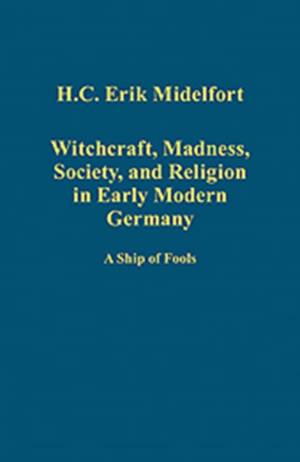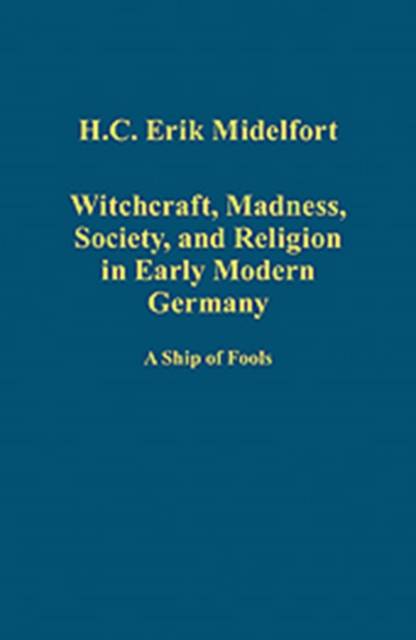
- Afhalen na 1 uur in een winkel met voorraad
- Gratis thuislevering in België vanaf € 30
- Ruim aanbod met 7 miljoen producten
- Afhalen na 1 uur in een winkel met voorraad
- Gratis thuislevering in België vanaf € 30
- Ruim aanbod met 7 miljoen producten
Zoeken
Witchcraft, Madness, Society, and Religion in Early Modern Germany
A Ship of Fools
H C Erik Midelfort
€ 206,45
+ 412 punten
Omschrijving
H.C. Erik Midelfort has carved out a reputation for innovative work on early modern German history, with a particular focus on the social history of ideas and religion. This collection pulls together some of his best work on the related subjects of witchcraft, the history of madness and psychology, demonology, exorcism, and the social history of religious change in early modern Europe. Several of the pieces reprinted here constitute reviews of recent scholarly literature on their topics, while others offer sharp departures from conventional wisdom. A critique of Michel Foucault's view of the history of madness proved both stimulating but irritating to Foucault's most faithful readers, so it is reprinted here along with a short retrospective comment by the author. Another focus of this collection is the social history of the Holy Roman Empire, where towns, peasants, and noble families developed different perceptions of the Protestant and Catholic Reformations and of the options the religious revolutions of the sixteenth century offered. Finally, this collection also brings together articles which show how Freudian psychoanalysis and academic sociology have filtered and interpreted the history of early modern Germany.
Specificaties
Betrokkenen
- Auteur(s):
- Uitgeverij:
Inhoud
- Aantal bladzijden:
- 368
- Taal:
- Engels
- Reeks:
Eigenschappen
- Productcode (EAN):
- 9781409457336
- Verschijningsdatum:
- 16/08/2013
- Uitvoering:
- Hardcover
- Formaat:
- Genaaid
- Afmetingen:
- 149 mm x 222 mm
- Gewicht:
- 724 g

Alleen bij Standaard Boekhandel
+ 412 punten op je klantenkaart van Standaard Boekhandel
Beoordelingen
We publiceren alleen reviews die voldoen aan de voorwaarden voor reviews. Bekijk onze voorwaarden voor reviews.











